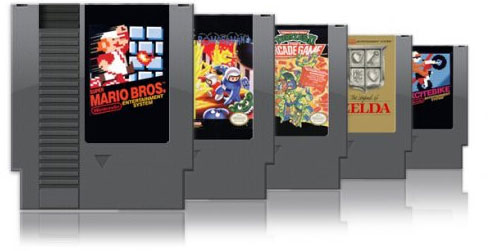In the summer of 1988, my parents bought a Chevy Suburban and drove our whole family down to Walt Disney World (the only time we ever went). My dad worked for GM at the time and so when we got to the Epcot Center, we got to cut in line to the now closed, World of Motion ride. It was a view of the future. Or should I say, a view of a possible future – one that mostly hasn’t happened – but that’s not what this post is about.
 Rebecca Murphey, a JavaScript engineer at Bocoup, wrote in her blog about how her dad bought one of the first personal computers:
Rebecca Murphey, a JavaScript engineer at Bocoup, wrote in her blog about how her dad bought one of the first personal computers:
“In 1982, Timex came out with the Timex Sinclair TS-1000…the computer, a few times thicker than the original iPad but with about the same footprint, cost $99.95.”
My dad bought one too and I remember having to hook it up to a special data tape player/recorder that acted as the ‘hard drive’. It’s what loaded and recorded changes to programs that displayed on the screen. I remember piecing the parts together and waiting for it to appear on the black and white television screen. We could load BASIC and type in commands, but we didn’t do much more than that. This post isn’t really about my early exposure to technology, it’s more about the man who exposed me to it.
While we didn’t have humanoid robots in our kitchen, we had dishwashers who washed our dishes for us – and a furnace that detected a sudden change in temperature and automatically adjusted accordingly. My dad grew up in a house with no running water. He took a bath in a metal tub in the middle of the kitchen next to the fire-burning stove. He used a Sears catalog for toilet paper in the outhouse out back – yet he was the only person in his class to build an automobile from spare parts.

I can only imagine my son re-discovering a vehicle from today, trying to understand this “hard app” (car radio) he found. What is it like growing up with a computer in every room and in every pocket? What is it like to always be on the Internet, always knowing where everyone is and what everyone is doing? What is it like to have your entire childhood documented in status messages, online galleries, and Youtube channels? When I went to high school, we weren’t even allowed to carry beepers.
I can only imagine how no running water, building your own car, learning how to program, and buying one of the first personal computers can shape the way you teach your children about technology. And I can only imagine how growing up with Timex Sinclair TS-1000’s, Atari 2600’s, Nintendo NES’, Windows 3.1, Netscape, Winsock, Windows 95, Nokia Cellphones, College Club, Myspace, and finally Facebook can change how I teach my children about technology. I worry that technology enables too much using and not enough doing. That’s part of what this blog is about – giving back to what I’ve learned from the Internet – and my dad.
 The 8-Bit Generation are those born in or around 1980 who knew a time before
The 8-Bit Generation are those born in or around 1980 who knew a time before